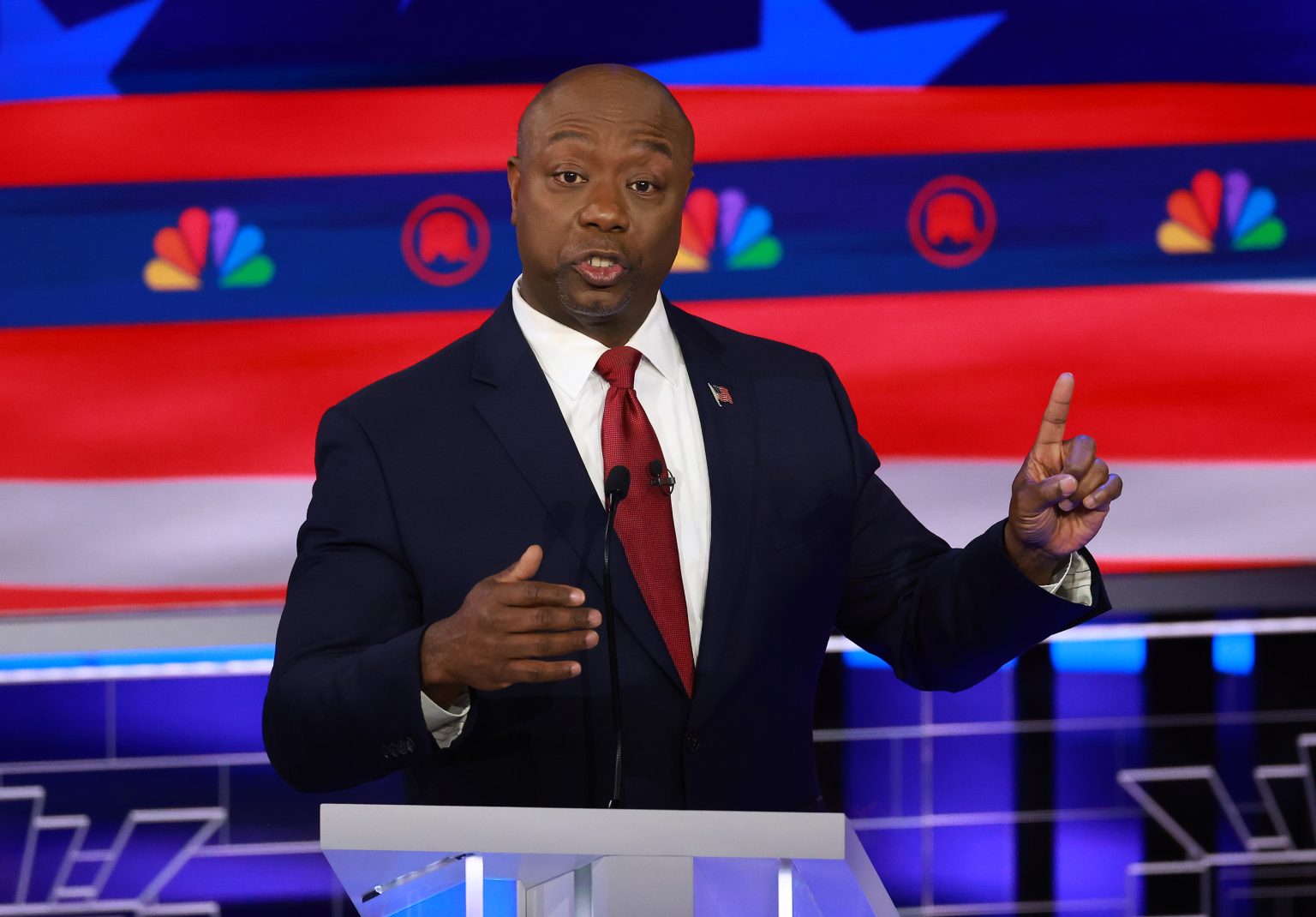Senator Tim Scott’s response to a question about accepting the results of the 2024 presidential election regardless of which party wins has sparked controversy on social media. Scott, who has been considered a potential vice presidential candidate for former President Donald Trump, stated that he believes Trump will be the 47th president of the United States, indicating he will not commit to accepting the election results “no matter who wins.” This stance has raised concerns about the integrity of the democratic process and the potential for challenges to election outcomes.
Despite Scott voting to certify the 2020 presidential results and previously stating he does not believe the election was stolen, his refusal to commit to accepting the 2024 election results has drawn criticism. Journalist Brian Stelter highlighted that Scott’s statement suggests he will only accept the results if Trump is declared the winner. This stance has raised alarm among watchdog organizations and commentators who see it as a threat to democracy. The comments have been seen as a reflection of the lack of consequences for Trump and his allies following the events of January 6th.
Criticism of Scott’s response has been widespread, with many expressing concerns about the implications of not accepting election results. Government watchdog organization Citizens for Responsibility and Ethics in Washington (CREW) pointed out that Scott’s refusal to commit to following the law and respecting the election outcomes could undermine the foundations of democracy. Talk show host Barry Markson emphasized the lack of evidence of fraud or corruption that would warrant challenging election results, suggesting that Scott’s stance is based on misinformation perpetuated by the Trump camp.
The controversy surrounding Scott’s response underscores broader concerns about the state of democracy and the potential for challenges to election outcomes. Many have pointed out that the failure to hold accountable those who spread misinformation about the 2020 election results, such as Trump and his allies, has enabled a narrative that undermines trust in the electoral process. The lack of consequences for attempts to overturn election results, such as those seen in the aftermath of the 2020 election, has emboldened individuals like Scott to question the legitimacy of future elections.
The debate over Scott’s comments reflects a larger issue of political polarization and the erosion of trust in democratic institutions. The reluctance to accept election results, based on unsubstantiated claims of fraud, has become a divisive issue that threatens the stability of the democratic process. As the 2024 presidential election approaches, the need for political leaders to uphold democratic norms and respect the outcome of free and fair elections is more crucial than ever. The controversy surrounding Scott’s response serves as a warning of the dangers of undermining electoral integrity and the importance of upholding democratic principles in a polarized political landscape.


